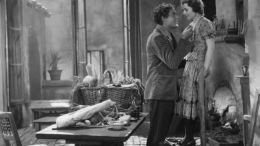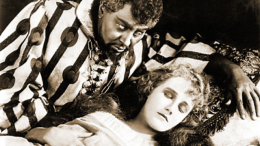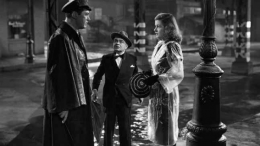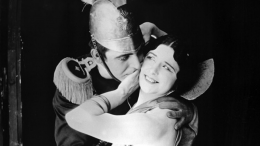Set in late 18th century London, Paul Leni’s film, adapted from Victor Hugo’s novel The Man Who Laughs (1869), tells the story of a disfigured, permanently smiling orphan boy, Gwynphaine. Gwynphaine lives by going from fair to fair with his faithful Ursus, a little blind girl called Dea and her dog Homo. The hapless troupe survives by offering him up as a fairground phenomenon until the boy grows up (Conrad Veidt) and discovers he is the son of an aristocrat. In a harsh indictment held in the House of Lords, Gwynphaine denies his own origins and returns to his former life with his loyal friends who, in the meantime, had been banished.
The Man Who Laughs is the third American film by German director Paul Leni, who was able to translate Hugo’s romanticism into an expressionist-inspired melodrama with great effectiveness in the last period of silent film. The ending of the film proves to be different from that of the novel, more cruel, despite Leni’s desire to remain faithful to the original work.
script: J. Grubb Alexander
photography: Gilbert Warrenton
music by: William Axt, Sam Perry, Erno Rapee
mounting: Edward L. Cahn, Maurice Pivar
scenography: Charles D. Hall, Thomas F. O’Neill, Joseph C. Wright
costumes: David Cox, Vera West
color: Bianco & Nero
taken from: Novel "L'Homme qui rit" by Victor Hugo
production company: UNIVERSAL PICTURES
distribution: UNIVERSAL PICTURES
other titles: The Man who laughs, L'homme qui rit, L'uomo che ride
Su gentile concessione dell'Ente dello Spettacolo





